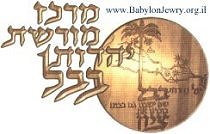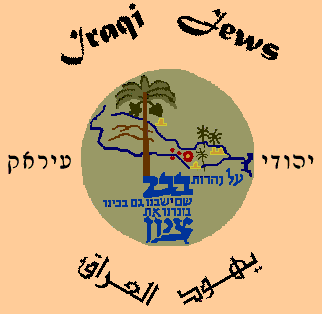Same old, same old from Yehouda Shenhav
Point of No Return
September 21, 2012
Calls to define the Jews from Arab countries as refugees have been silenced in the past by Israeli governments. The change of policy and Danny Ayalon’s intense activity are related to the relatively new realization that Israel can no longer evade its responsibility for the Nakba. It is, however, in the interest of those leading the campaign to learn the history of this unrealistic proposal.
For the past three years, we’ve witnessed an intensive campaign, the purpose of which is to achieve political and legal recognition for Jews of Arab countries as “refugees”. The campaign seeks to create in the public mind an analogy between Palestinian refugees and the Mizrahis [Oriental Jews] who came to Israel in the fifties and sixties and present both populations as victims of the 1948 war. Israel Foreign Ministry, under the leadership of Danny Ayalon, is intensely involved in the collection of testimonies that will reduce (like an exercise of algebra), the Palestinian refugee testimonies on the expulsion, the looting and killing.
Two years ago, the Knesset passed a resolution obligating every Israeli government engaged in negotiations with Arab representatives (meaning Palestinians) to refer to Jews of Arab countries as refugees. Last week, the National Security Council published its administrative work recommending to the government “to create a bond between the Palestinian refugees and the Jews from Arab Lands”. It was Uzi Arad who decided upon his nomination as Head of the Council to set up a special team that will consolidate the Israeli official position on the subject of “Jewish refugees from Arab countries”. To that end Arad received Netanyahu’s blessing. He founded a special administrative body at the National Security Council and even invited people from the Foreign Ministry, the Justice Ministry and the Finance Ministry to the discussions. Historians, economists, Jewish organization representatives such as WOJAC – the World Organization for Jews of Arab Countries – and the Jewish American Organization Justice for Jews of Arab Countries (JJAC) were invited to those discussions as well. The Council recommended to the Prime Minister to make “the Jewish refugees” and the compensation claim on their behalf an integral part in negotiations on the Palestinian refugees issue.
Calls to define the Jews of Arab countries as refugees have been silenced in the past by diverse Israeli governments. Why then the change of policy? Among other considerations, there is the relatively recent recognition that Israel can no longer evade its responsibility for the Nakba. This gross ploy by the Foreign Ministry testifies to fear of the Palestinian claim to return and compensation, a central component of Palestinian demands. It proves that Israel recognizes that the 67 paradigm will not bring an end to the conflict due to its denial of the Nakba. With that realization in mind the campaign leadership hopes by using the Orientals to block the implementation of the Palestinian “right of return” and reduce the amount of compensation that can be demanded of Israel for Palestinian assets expropriated by the Custodian of “absentee” properties. This idea is historically mistaken, is not politically smart, and is morally unjust as can be determined from its biography.
An unfortunate history that should be memorialized
The campaign to recognize the Jews of Arab Countries as refugees was in effect launched by Bill Clinton already in June 2000 in an interview with Channel One. Ehud Barak repeatedly stated his “achievement” in August 2000 in an interview with Dan Margalit. It is important to remember that in the past the Israeli governments avoided coming out with a declaration on the Jews of Arab countries as refugees. First, from fear that this kind of declaration will bring back what Israel has tried to erase and forget: the Palestinian claim to return. Secondly, for fear that such a declaration will spur Jewish claims against Arab Countries and Palestinian counter-claims; third, because Israel had then to update the history textbooks and rewrite the narrative according to which the Oriental Jews came to Israel not because of their Zionist yearnings but against their will. Any historian who would have made that claim would have been called a Post-Zionist.
Those who at the time concocted the equation between the Oriental Jews and the Palestinian refugees for Barak and Clinton were the Prime Minister’s Adviser to Diaspora Affairs Bobi [Roni?] Bar-On with people from his office along with representatives of organizations such as the World Jewish Congress, the World Federation of Sephardic Jews and the Conference of Presidents. Dr. Avi Bekker, Secretary of the Jewish Congress, and Malcolm Hoenlein, Secretary General of the Conference of Presidents, met with Professor Irwin Cotler, member of the Canadian Parliament and expert in international law, and convinced him to join the campaign. The umbrella organization founded under the name “Justice for the Jews of Arab Countries” didn’t succeed in generating massive enthusiasm for the campaign, not even in the Jewish world. The campaign has failed, until recently, to generate any noteworthy statements on the part of major Israeli politicians. This isn’t surprising. This campaign has an unfortunate history that they should do well to remember because history can be a very practical business.
WOJAC, the World Organization for Jews of Arab Countries, was founded in the 1970s. Igal Alon, then Foreign Minister, feared that WOJAC would be used as a hotbed for what he dubbed “ethnic organizing”. As already mentioned, WOJAC was not founded to help the Oriental Jews but rather to create a deterring balance to bloc claims by the Palestinian National movement, principally refugee claims and right of return. Allegedly, the use of the expression “refugees” was not unreasonable, indeed the concept has become central in the historical debate and international law after WWII. Resolution 242 of the UN Security Council of 1967 spoke of a “just solution to the problem of refugees in the Middle East”. In the 1970s the Arab countries demanded to mention explicitly the Palestinian refugees, however, the US government through its representative at the UN, Arthur Goldberg, opposed the move.
In a working paper prepared by Cyrus Vance, then Secretary of State, in 1977, in anticipation of a potential meeting of the Geneva Convention, it was introduced, under Israeli pressure, that a solution to “the refugee problem” must be found, without specifying to which refugees it is being referred. WOJAC, who tried to popularize the concept “Jewish refugees”, has failed. In addition to the Arabs, many Zionist Jews throughout the world opposed the initiative as well. I recommend to the current campaign’s organizers to examine the anatomy of an organization that has turned in the course of its activities, from Zionist to Post-Zionist, and to learn a chapter in the theories of unexpected result of political action.
The advocate of the concept “Jewish refugees” inside WOJAC was Yaakov Meron, Director of the Department of Arabic Law at the Justice Ministry. Meron redacted the equation in the most extreme thesis on the issue of the Jews of Arab Lands. He claimed that Jews were expelled from Arab countries in an operation coordinated with the Palestinian leadership and called it “ethnic cleansing”. Meron harshly criticized the Zionist Epos which he claimed sprouted romantic nicknames such as “Magic carpet” or “Operation Ezra and Nehemiah” which led to forget “the fact” that the flight of the Jews was in fact the consequence of an “Arab policy of expulsion”. In order to complete the analogy between the Palestinians and the Oriental Jews, the WOJAC people even claimed the Orientals lived in the 1950s in refugee camps (read: Maabarot) just like the Palestinian refugees. This claim gave rise to harsh reactions on the part of the Integrating institutions who called it “treason”.
The arguments of the Organization shocked many Mizrahim who defined themselves as Zionists. In 1975, immediately after WOJAC was founded, Israel Yeshayahu, then Chairman of the Knesset, clarified: ”We are not refugees. We also came to this country before the founding of the state… We had Messianic yearnings….” Shlomo Hillel, a Minister in the Israeli government who was active in bringing the Jews of Iraq to Israel, decisively opposed the claim: “I do not refer to the departure of Jews from Arab Countries as refugees. They came because they wanted to come. As Zionists”. An emotional Ran Cohen declared in a Knesset debate: “I am informing you: I am not a refugee.” And he added: “I came drawn by the force of Zionism, drawn by the attracting force of this country and the idea of redemption. No one will define me as a refugee”.
The opposition was so strong that Orah Shweitzer, Chairwoman of WOJAC policy committee, asked the Secretariat of the organization to stop the campaign. She reported that the members of the Strasbourg community were so offended by the term that they threatened her and the Leader of the community that if the Sephardi Jews were to be defined as refugees again they will boycott the meetings. The Foreign Ministry too became fearful of WOJAC’s energy and advised to stop the campaign based on the argument that to define the Mizrahis as refugees is a two-edged sword. In the past, Israel has always maintained a policy of ambiguousness around this complex issue. In 1949, she even rejected a British-Arab offer of a population exchange (Iraqi Jews vs Palestinian refugees) for fear she would have to care for a “surplus of refugees” in Israel. The Foreign Ministry called WOJAC divisive and separatist and demanded that it stops managing itself independently in opposition to the country’s interests.
The Foreign Ministry finally stopped its fund transfers to WOJAC. Justice Minister Yossi Beilin went as far as fire Yaakov Meron from his post at the Arabic Law Department at the Foreign Ministry. Mention must be made of the fact that today, no serious researcher in Israel or out, has adopted the extreme claims of the organization. Furthermore, in an attempt to reinforce the Zionist thesis and assist in Israel’s war on Palestinian nationalism, WOJAC achieved the opposite. It presented a confused Zionist position on the conflict, angered many Oriental Jews throughout the world because it represented them as lacking positive motivation to come to Israel, and mortgaged the interests of Mizrahi Jews (mainly on the issue of Jewish assets in Arab countries) for what it mistakenly defined as national interests. The organization didn’t understand that to define Mizrahi Jews as “refugees” opens a Pandora box and harms every party involved in the conflict, Arabs and Jews alike.
Refugees and Free Will
Out of a desire to find a magic solution to the refugee question, the State has again adopted the formula and is promoting it with great enthusiasm throughout the world. It would be interesting to hear the Education minister’s position with regard to the narrative presented by the Jewish representatives in the campaign. Will the Ministry of Education form a committee to rewrite history textbooks to match the new Post-Zionist genre? Any honest person whether Zionist or not, must admit that the analogy between Palestinians and Mizrahi Jews is unrealistic. The Palestinian refugees didn’t want to leave Palestine. In 1948 many Palestinian villages were destroyed. And about 750 000 Palestinians were expelled from historic Palestine. Those who fled didn’t do so of their own free will.
On the other hand, the Jews of Arab countries arrived here due to the initiative of the State of Israel and Jewish organizations. Some arrived of their own will and some against their will. Part lived at ease and in security in the Arab countries, part in fear and oppression. The history of the Mizrahi immigration is complex and does not allow for one single simplistic explanation. A great number has lost a great amount of properties, and there is no doubt that they must be afforded the opportunity to file individual claims against Arab countries, which the State of Israel and WOJAC have blocked to this day. For example, the peace treaty with Egypt doesn’t allow the filing of individual claims against Egypt. Jewish Egyptian assets are perceived as being the State of Israel’s assets, and inventory is important in order to reduce future Palestinian property claims. Another example: during the Gulf war, property belonging to a Ramat-Gan Jewish-Iraqi family was damaged. In the framework of the claim for damages, a seasoned lawyer suggested to include the claim for the house that was confiscated by the Iraqi government in 1952. The Foreign ministry prohibited it, in keeping with Israeli government policy to hold those assets as part of the inventory in future negotiations with the Palestinians.
The analogy between the Palestinian refugees and the Oriental Jews is unrealistic, not to mention criminal and immoral. It causes friction between Orientals and Palestinians. It insults the dignity of many Orientals and harms chances for genuine peacemaking. Furthermore, it denotes lack of understanding of the meaning of the Nakba. The Nakba doesn’t refer only to the events of the war. The Nakba is essentially the prevention of the return of the expelled to their homes, their lands and their families in the aftermath of the founding of the State of Israel. The Nakba is a clear activity of the State of Israel, and not only a sequel of war chaos.
Israel’s temptation to use the reduction concept is understandable, but it should not use diverse scarecrows in order to dismiss the moral and political claims of the Palestinians. Such manipulation adds insult to injury and increases the psychological distance between Jews and Palestinians. Even if part of the Palestinians relinquish implementation of their right of return (as Dr. Halil Shakaki for example claims) that must not be obtained through ploys of this sort. Any peace accord must pass through Israeli recognition of past wrongs and a fair solution proposal. The accounting exercise is turning Israel into a bookkeeper lacking a political and moral backbone.



